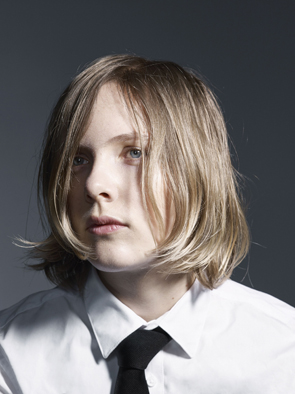The Discomfort of Evening is a brilliant book, but it’s not going to be for everybody. If you’ve ever had the experience of being introduced to somebody, liked them and allowed them to form a friendship with you, only to discover that they are revealing disturbing things you were never quite signing on to hear (this review is not biographical, but if you fear I’m about to reveal something awkward then you’re beginning to understand what I’m driving at here) you understand why some people might find this book discomforting. If you’re uncomfortable with orifices and bodily functions, for instance, you might be a little disturbed: masturbation, urination, inserting soap into someone’s anus (repeatedly), blowing a wad of bull semen into a child’s vagina, unusual sexual practices involving Coke cans between siblings, and the experimental killing of animals are all part of the show. If you feel confronted by topics about death you may find this a difficult read. Death pervades the novel, from the opening pages in which Jas prays to God for her brother, Matthies, to die rather than her rabbit be eaten – and then Matthies does die by falling right through the ice on the lake – to the ever-present noose Jas fears her mother will use, to the fear of disease, and the death of farm animals. And not even the farm animals escape the indignities of having things shoved up their anus, by the way. It’s a thing in this book and if you read it, you’re just going to have to settle in and let it happen.
Nevertheless, Rijneveld isn’t indulging in the salacious or sensational. Rather, you get the feeling that you are, instead, privy to the candid mind of Jas, ten-years-old when the novel begins, but twelve for most of its duration, confronted with the death of her brother. Aware of his body lying in his coffin in the house with its viewing window, Jas becomes engrossed with death, as well as her own developing sexuality. Death is a mystery. It transforms her brother so that the physical vessel and space he occupies becomes alien to her. Just as sex is transformative. When Jas watches her sister masturbate, she is both fascinated as well as confused to see her sister react in a way hitherto unseen. Hanna is transformed in front of Jas by this moment both are too inexperienced to understand. But Jas does become aware that death, like sexual desire, delineates between a self and an ‘other’ that is also, paradoxically, self. Jas finds numerous expressions of this liminal state. Hearing that cotton wads have been placed in her dead brother’s anus to prevent his crap coming out, Jas begins to develop an inability to go to the toilet for days. Her father shoves flakes of soap into her anus – an old country remedy – but she fails to poo. Like the red coat she wears everywhere and refuses to remove, Jas is defining an enclosed self by her actions, distinct from the world and death.
I found much of the novel reminiscent of Julia Kristeva’s writings about abjection and the control of the body. For Kristeva the body is both exterior and interior, public and private, existing both in a masculine and feminine sphere. The social development of the individual is from a pre-oral world in which a child’s life is dominated by the feminine, towards the masculine world of patriarchy and the symbolic world of the father. Control of the body, of its functions and its desires – its abject state – is essential to undergo this transformation.
Rijneveld, who we are informed in the author biography, works on a dairy farm, sets the story on a dairy farm where the daily realities of life confront the three remaining children, Jas, Hannah and Obbe, their brother. It is a world of breeding, the realities of which are ill-kept from the children by their conservative parents. It is a world of life and death, of hardship and the deeply religious culture of rural people. Jas is steeped in the symbolic world of her Christian father. Her narrative is dotted with biblical quotations. Language, itself, is sanctioned by the Bible. Taboo words and words that don’t appear in the Bible are blush words
, belonging essentially to their mother’s world. Their mother watches Lingo, a quiz show. She guesses many of the correct answers, words that don’t appear in the Bible, from the show, but when the television is off, its black screen becomes the eye of God
. When Jas finally allows herself to poo it is because a verse from Deuteronomy seems to sanction it. Typically, Jas and her sister, fearing their house is a place of death, long to escape, but cannot imagine their escape except in the traditional paradigms dictated by patriarchal culture. They imagine themselves as Rapunzel; that like Rapunzel, they must await a saviour (And it has to be a man. Rescuers are always men.
. And even if that saviour might materialise as the creepy vet who openly ogles the twelve-year-old Jas and complements her on her attractiveness, the patriarchal Christian paradigms that guide the family are so fixed that no one finds this disturbing. Instead, what the vet highlights is that Jas’ story is one of becoming. But Jas’ becoming – her developing into the adult she will one day be – is textured not only by her awakening sexuality, but her meditation on death; that these fundamental principles contest the ground upon which her identity will be shaped.
In essence, the novel is a coming of age story, but it would be giving too much away to explain why the novel adopts the expectations of that genre rather than necessarily attempting to fulfil them. This is a subtle book, with many layered effects. Jas’ search for meaning and desire for escape is not just a character journey predicated upon the symbolism of the farm and the lake where her brother has died, but echoes stories from the Bible – the ten plagues, the flight out of Egypt, the parting of the Red Sea – as well as the quintessential representation of death and hopelessness in the twentieth century: the Holocaust. Rijneveld is an amazing writer, unafraid of a difficult subject: willing to confront the most private moments, the formative experiences of growing into adulthood, as well as expressing the confusion and uncertainties of death and sex that will unnerve some people. Added to this, Michele Hutchinson’s translation is pitch perfect, capturing the voice of a twelve-year-old who is at once distressed but strangely detached. It’s a near-perfect book.

 RSS Feed
RSS Feed Facebook
Facebook Instagram
Instagram YouTube
YouTube Subscribe to our Newsletter
Subscribe to our Newsletter




No one has commented yet. Be the first!